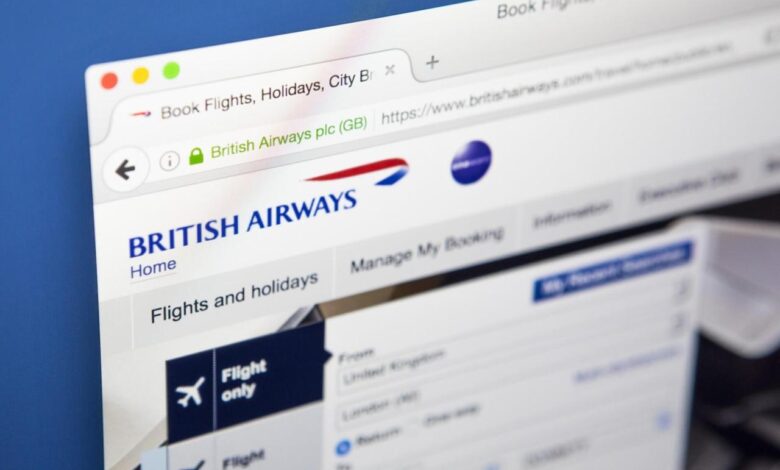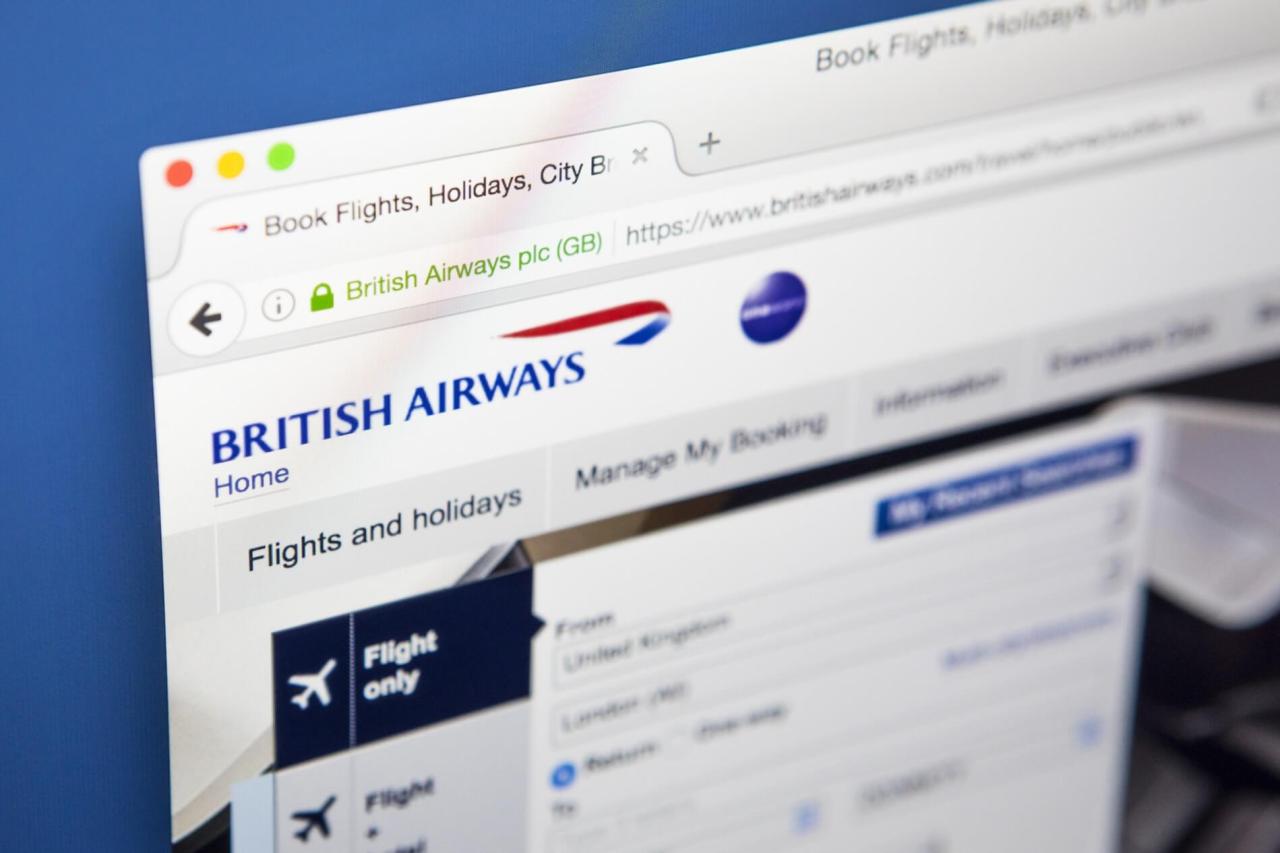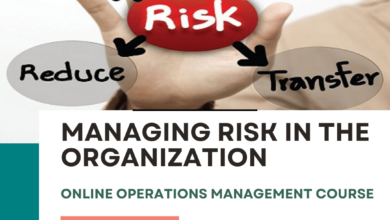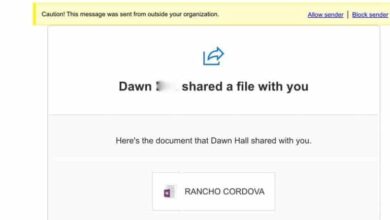
British Holidaymakers Vulnerable to Cyber Attacks
British holidaymakers are vulnerable to cyber attacks – it’s a chilling reality, isn’t it? We all love that escape, that sun-drenched freedom, but the digital world casts a long shadow, even on paradise beaches. This post dives into the sneaky ways cybercriminals target unsuspecting Brits abroad, from phishing scams designed to look like your favourite travel company to malware lurking in seemingly harmless public Wi-Fi.
We’ll uncover the vulnerabilities, explore the impact, and arm you with the knowledge to stay safe.
Think about it: you’re relaxed, maybe a little jet-lagged, and suddenly you’re navigating unfamiliar websites and apps, often on less secure networks. This creates the perfect storm for cybercriminals. We’ll explore the psychology behind why holidaymakers are particularly susceptible, compare their online habits to others, and examine the different types of attacks, from simple phishing to more sophisticated data breaches affecting major travel companies.
We’ll also discuss the crucial role travel companies and the government play in protecting us.
Vulnerability of British Holidaymakers
British holidaymakers, renowned for their love of exploring the globe, often unknowingly expose themselves to significant cyber risks while travelling. The ease and convenience of accessing the internet and online services abroad, coupled with a perhaps less cautious approach to online security, makes them a prime target for cybercriminals. This vulnerability stems from a combination of online behaviour, psychological factors, and a comparison to the security practices of other nationalities.
Typical Online Behaviors of British Holidaymakers Abroad
Many British holidaymakers readily connect to public Wi-Fi hotspots in airports, hotels, and cafes, often without considering the security implications. This practice is widespread, driven by the desire to stay connected with family and friends, share travel experiences on social media, and access online maps and travel information. Furthermore, the use of mobile banking apps and online shopping while abroad is common, increasing the risk of financial fraud.
Many also use their personal devices to access sensitive information such as flight details, accommodation bookings, and credit card information.
Common Vulnerabilities Exploited by Cybercriminals
Cybercriminals exploit several vulnerabilities associated with these online behaviours. Unsecured public Wi-Fi networks are easily intercepted, allowing criminals to steal login credentials, credit card details, and other sensitive information. Phishing scams, often disguised as legitimate emails or text messages related to travel bookings or flight changes, are particularly effective. Malware, downloaded unknowingly through infected websites or apps, can compromise devices and steal data.
Criminals also target individuals using outdated software or devices with weak security settings. The use of easily guessable passwords further exacerbates the risks.
Psychological Factors Contributing to Susceptibility to Phishing and Malware
The relaxed atmosphere of a holiday can lead to a decrease in vigilance. British holidaymakers, like many others, may be more likely to click on suspicious links or download attachments from unknown sources while on holiday, simply because they are less focused on security concerns. The excitement of travel and the desire for immediate access to information can override caution.
A sense of urgency, often created by well-crafted phishing emails, can further increase susceptibility. The feeling of being away from home and less accessible to support systems can also impact judgment and increase vulnerability.
Comparison of Security Practices with Other Nationalities
While generalisations are difficult, some research suggests that British holidaymakers may exhibit a slightly lower level of awareness regarding online security compared to some other nationalities, particularly those from countries with a higher historical prevalence of cybercrime. However, this is not universally true, and many British travellers are highly security conscious. The key difference often lies in the proactive measures taken before and during travel, such as using VPNs, regularly updating software, and employing strong passwords.
Those from countries with stricter data protection regulations and greater public awareness campaigns may demonstrate more robust security habits.
Types of Cyber Attacks Targeting Holidaymakers: British Holidaymakers Are Vulnerable To Cyber Attacks

British holidaymakers, brimming with excitement for their well-deserved break, are often unaware of the lurking dangers in the digital world. The convenience of online booking and digital travel documents unfortunately makes them prime targets for various cyberattacks. These attacks range from simple phishing scams to sophisticated malware distribution, all designed to exploit the vulnerabilities of unsuspecting travellers. Understanding these threats is the first step in protecting yourself.
Phishing Attacks Targeting British Holidaymakers
Phishing attacks are a common tactic used to steal personal and financial information. These attacks often take the form of seemingly legitimate emails or text messages, mimicking reputable travel companies or airlines. For example, a holidaymaker might receive an email claiming to be from their airline, informing them of a flight cancellation and requesting them to update their passport details via a malicious link.
Another common tactic involves fake booking confirmations, prompting users to click a link to “confirm” their reservation, leading them to a fraudulent website designed to harvest their credit card information. These emails frequently exploit current events, such as travel disruptions or popular holiday destinations, to increase their credibility and likelihood of success. The sophisticated nature of these attacks means even tech-savvy individuals can be caught off guard.
Malware Distribution Targeting Holidaymakers’ Devices
Malware, or malicious software, can be distributed through various methods, targeting holidaymakers’ devices. One common approach is through malicious websites disguised as legitimate travel resources. A holidaymaker searching for cheap flights or accommodation might unknowingly stumble upon a website that downloads malware onto their device simply by visiting the site. Another method involves infected email attachments or links promising travel deals or free services.
Once downloaded, this malware can steal personal information, monitor online activity, or even encrypt files, demanding a ransom for their release – a type of attack known as ransomware. Free Wi-Fi hotspots, often used by holidaymakers in airports or hotels, are also prime locations for malware distribution. These networks, often unsecured, can be easily compromised, allowing attackers to inject malware onto connecting devices.
Data Breaches Affecting Travel Companies and Their Impact on British Holidaymakers, British holidaymakers are vulnerable to cyber attacks
Data breaches targeting travel companies have become increasingly prevalent. When a travel company experiences a data breach, the personal information of its customers, including British holidaymakers, is at risk. This information can include names, addresses, passport numbers, credit card details, and travel itineraries. The consequences of such breaches can be severe, ranging from identity theft and financial fraud to the cancellation of travel plans and reputational damage for the affected company.
For example, a large-scale data breach at a major hotel chain could expose the booking details and payment information of thousands of British holidaymakers, leaving them vulnerable to financial losses and identity theft. The emotional distress caused by such incidents can also be significant.
Social Engineering Techniques Exploiting British Holidaymakers’ Trust
Social engineering exploits human psychology to manipulate individuals into revealing sensitive information or performing actions that compromise their security. This often involves building trust and exploiting the holidaymaker’s eagerness to secure their travel arrangements or receive a good deal. For instance, an attacker might pose as a travel agent, offering an incredibly low price on a popular holiday package.
This seemingly attractive offer encourages the victim to overlook red flags and share their personal and financial information, leading to fraud. Another example is the “urgent request” technique, where a holidaymaker receives a call claiming their booking is at risk of cancellation unless they immediately provide their credit card details. The pressure and urgency of the situation often lead to hasty decisions and compromise of sensitive data.
Impact of Cyber Attacks on British Holidaymakers
Cybercrime targeting British holidaymakers isn’t just a minor inconvenience; it can have devastating consequences, impacting finances, emotional wellbeing, and overall travel experience. The rise in online travel bookings and the increasing reliance on mobile devices while abroad have unfortunately made holidaymakers prime targets for sophisticated cyberattacks. Understanding the extent of this impact is crucial for both travellers and the authorities.
Financial Losses Suffered by British Holidaymakers
The financial ramifications of cyberattacks on holidaymakers can be significant. Phishing scams leading to credit card fraud, compromised online booking accounts resulting in duplicate payments, or malware infections leading to unauthorized bank transfers are all common scenarios. The average financial loss per victim varies greatly depending on the type of attack, but reports suggest that losses can range from hundreds to thousands of pounds, impacting not only the holiday itself but also potentially affecting household budgets long after the trip has ended.
For example, a family whose holiday booking was cancelled due to a fraudulent transaction might not only lose the cost of the flights and accommodation but also incur additional fees for rebooking and potentially miss out on non-refundable experiences.
Emotional Distress Caused by Identity Theft or Data Breaches
Beyond the financial impact, the emotional distress caused by cyberattacks related to travel can be profound. Identity theft, a particularly serious consequence of data breaches, can leave victims feeling violated and vulnerable. The process of rectifying stolen identities, contacting various institutions to report the fraud, and monitoring credit reports can be incredibly stressful and time-consuming. The anxiety and fear associated with the potential misuse of personal information, such as passport details or travel itineraries, can also significantly impact mental wellbeing.
The sense of insecurity and the feeling of being powerless against such attacks can leave lasting emotional scars. For example, someone who experiences identity theft related to their passport application might face significant delays and added stress in planning future travel.
Support Available to Victims of Cybercrime Related to Travel
Fortunately, various support mechanisms are available to British holidaymakers who fall victim to travel-related cybercrime. Action Fraud, the UK’s national reporting centre for fraud and cybercrime, is a primary resource for reporting incidents and receiving guidance. Citizens Advice offers free, independent advice and support on a range of issues, including cybercrime. Banks and credit card companies also have procedures in place to assist victims of fraud, including reimbursement for unauthorized transactions.
Additionally, many travel insurance policies now include cybercrime coverage, offering financial assistance and support in dealing with the aftermath of an attack. It’s vital for victims to report incidents promptly to the relevant authorities and their financial institutions to maximize the chances of recovering losses and mitigating further damage.
Types of Cyberattacks, Their Impact, and Preventative Measures
| Attack Type | Impact on Holidaymaker | Prevention Methods |
|---|---|---|
| Phishing Emails/SMS | Financial loss due to fraudulent transactions, compromised accounts. | Never click on suspicious links, verify sender authenticity, use strong passwords. |
| Malware Infections | Data theft, financial loss, device malfunction. | Use reputable antivirus software, avoid downloading from untrusted sources, keep software updated. |
| Wi-Fi Exploitation | Data interception, account compromise. | Use a VPN on public Wi-Fi, avoid accessing sensitive information on unsecured networks. |
| Skimming | Credit card fraud. | Shield PIN when entering it, use contactless payment where possible, check bank statements regularly. |
Protective Measures and Best Practices
So, you’ve packed your bags, booked your flights, and are ready for your well-deserved British holiday. But before you even think about sunbathing on the beach, let’s talk about something equally important: protecting yourself from cyber threats. The digital world doesn’t take a holiday, and neither should your security awareness. This section Artikels practical steps you can take to keep your data and devices safe while travelling.Staying safe online whilst travelling requires proactive measures and a sensible approach.
British holidaymakers are increasingly vulnerable to cyberattacks, especially when using unsecured public Wi-Fi. This highlights the urgent need for robust security measures, and understanding solutions like those offered by Bitglass, as detailed in this insightful article on bitglass and the rise of cloud security posture management , is crucial. Ultimately, better cloud security posture management is key to protecting ourselves from these threats, safeguarding our data even while enjoying a well-deserved break abroad.
Failing to take precautions can lead to significant financial and personal losses. The good news is that many preventative measures are simple to implement and can significantly reduce your risk.
A Checklist for Safeguarding Data and Devices
Prioritising your digital security before, during, and after your holiday is crucial. This checklist provides a structured approach to protecting your data and devices.
- Back up your data: Before you leave, back up all important files to a cloud service or external hard drive. This safeguards your data in case of device loss or damage.
- Update software: Ensure your operating systems, apps, and antivirus software are up-to-date. This patches known security vulnerabilities.
- Enable two-factor authentication (2FA): Activate 2FA wherever possible on your email, banking, and social media accounts. This adds an extra layer of security.
- Disable unnecessary features: Turn off Bluetooth, Wi-Fi, and location services when not in use to minimise potential attack vectors.
- Be cautious of public Wi-Fi: Avoid accessing sensitive information like banking details on public Wi-Fi networks. If you must, use a VPN.
- Keep your devices close: Don’t leave your devices unattended in public places, and be mindful of your surroundings.
- Monitor your accounts: Regularly check your bank statements and credit card transactions for any suspicious activity.
Strong Passwords and Multi-Factor Authentication
Using strong, unique passwords and multi-factor authentication (MFA) is fundamental to online security. Weak passwords are easily guessed, and a single compromised account can lead to a cascade of problems. MFA adds an extra layer of security, making it much harder for attackers to access your accounts even if they obtain your password.
- Create strong passwords: Use a password manager to generate long, complex passwords for each of your accounts. A strong password should include a mix of uppercase and lowercase letters, numbers, and symbols.
- Enable multi-factor authentication (MFA): MFA typically involves using a second verification method, such as a code sent to your phone or email, in addition to your password. This significantly reduces the risk of unauthorized access.
- Use different passwords: Never reuse the same password across multiple accounts. If one account is compromised, attackers won’t be able to access your other accounts.
Identifying and Avoiding Phishing Emails and Suspicious Websites
Phishing emails and websites are designed to trick you into revealing your personal information, such as passwords and credit card details. Learning to identify and avoid these scams is crucial.
- Check the sender’s address: Be wary of emails from unfamiliar senders or those with suspicious email addresses.
- Look for grammatical errors: Phishing emails often contain spelling and grammatical mistakes.
- Don’t click on links in suspicious emails: Instead, type the website address directly into your browser.
- Hover over links: Before clicking a link, hover your mouse over it to see the actual URL. If it looks suspicious, don’t click it.
- Be cautious of urgent requests: Phishing emails often create a sense of urgency to pressure you into acting quickly without thinking.
Securing Mobile Devices and Using Secure Wi-Fi Networks
Mobile devices are vulnerable to attacks, especially when using public Wi-Fi. Taking precautions to secure your mobile devices and choosing secure Wi-Fi networks is vital.
British holidaymakers are increasingly vulnerable to cyberattacks, especially when using unsecured public Wi-Fi. Building robust security into travel apps is crucial, and that’s where understanding the advancements in app development comes in. Check out this article on domino app dev, the low-code and pro-code future , to see how developers are creating more secure and efficient applications. Ultimately, safer apps mean better protection for those British holidaymakers facing digital dangers abroad.
- Use a strong passcode or biometric authentication: Protect your phone with a strong passcode or biometric authentication (fingerprint or facial recognition).
- Install a mobile security app: A reputable mobile security app can help protect your device from malware and other threats.
- Avoid using public Wi-Fi for sensitive tasks: Use a VPN when connecting to public Wi-Fi to encrypt your data and protect your privacy.
- Keep your device software updated: Regularly update your phone’s operating system and apps to patch security vulnerabilities.
- Be aware of your surroundings: Avoid using your phone in crowded or poorly lit areas where someone could easily steal it.
Role of Travel Companies and Government
The responsibility for protecting holidaymakers from cyberattacks doesn’t rest solely on the individual. Both travel companies and the UK government play crucial roles in mitigating risks and ensuring safer online experiences for British travellers. This section will explore the contributions and responsibilities of each, highlighting areas for improvement.Travel companies handle vast amounts of sensitive customer data, from passport details and flight itineraries to payment information and accommodation preferences.
Their role in cybersecurity extends beyond simply offering a booking service; they have a moral and, in many cases, legal obligation to safeguard this information. Failure to do so can lead to significant financial losses for customers, reputational damage for the company, and potential legal repercussions.
Travel Company Responsibilities in Data Protection
Travel companies should implement robust security measures to protect customer data. This includes using secure servers, employing encryption techniques for sensitive information, and regularly updating their security systems to address emerging threats. They should also implement strong password policies for employee and customer accounts and provide comprehensive employee training on cybersecurity best practices. Transparency is key; companies should clearly Artikel their data protection policies and procedures, allowing customers to understand how their information is being handled and protected.
Proactive monitoring for suspicious activity and a swift response to any security breaches are also vital components of a comprehensive security strategy. For example, a well-known UK travel company, following a data breach, implemented multi-factor authentication for all customer accounts and offered free credit monitoring services to affected individuals, demonstrating a responsible approach to rectifying a security failure.
The UK Government’s Role in Cybersecurity Education
The UK government has a responsibility to educate the public about the cybersecurity risks associated with travel. This includes raising awareness of phishing scams, malware attacks, and the dangers of using unsecured Wi-Fi networks. Government-led campaigns could utilise various media channels, such as television, radio, and social media, to disseminate crucial information to a wide audience. These campaigns should be targeted at different demographics, addressing the specific concerns and needs of various age groups and tech-savviness levels.
Clear, concise, and easily understandable information is crucial. Furthermore, the government could support the development of educational resources and online tools to help individuals protect themselves online, potentially partnering with cybersecurity experts and organizations. The success of such initiatives would depend on clear messaging and consistent engagement, avoiding jargon and technical terms that might confuse the average user.
Comparison of Cybersecurity Measures Across UK Travel Companies
While many UK travel companies are making efforts to improve their cybersecurity, the level of protection offered varies significantly. Some companies invest heavily in advanced security technologies and employee training, while others may have less robust security measures in place. Direct comparison is difficult due to the lack of publicly available, standardized security audits across the industry. However, anecdotal evidence and news reports suggest that some companies are more proactive in addressing security threats and communicating with customers about potential risks.
A consistent and transparent approach to security reporting and independent auditing of security practices across the industry would be beneficial for both companies and consumers.
Recommendations for Improving Cybersecurity Awareness Campaigns
To improve cybersecurity awareness campaigns for holidaymakers, government agencies should consider the following recommendations:
- Develop targeted campaigns tailored to specific demographics and travel styles.
- Utilize a multi-channel approach, including social media, television, and radio advertisements.
- Collaborate with travel companies to integrate cybersecurity information into their booking processes and pre-travel communications.
- Create easily accessible and understandable online resources, including videos and infographics.
- Promote the use of strong passwords and multi-factor authentication.
- Offer free cybersecurity training and workshops to the public.
- Regularly update and refresh campaigns to reflect emerging threats and technologies.
- Partner with cybersecurity experts and organizations to ensure the accuracy and effectiveness of campaigns.
Future Trends and Predictions

The digital landscape is constantly evolving, and with it, the threats to online security. British holidaymakers, increasingly reliant on technology for travel planning and on-the-ground experiences, face a growing risk of sophisticated cyberattacks. Predicting the future is inherently uncertain, but by analysing current trends and emerging technologies, we can anticipate the challenges likely to impact travellers in the coming years.Emerging cybersecurity threats targeting British holidaymakers will likely become more sophisticated and personalized.
We can expect to see an increase in targeted phishing campaigns leveraging real-time location data and social media information to craft more convincing lures. The rise of deepfakes and AI-powered scams will make it harder to distinguish legitimate communications from fraudulent ones. Furthermore, the increasing use of IoT devices during travel, from smart luggage to hotel room controls, presents new attack vectors for malicious actors.
Emerging Cybersecurity Threats
The proliferation of interconnected devices within the travel ecosystem – from airport Wi-Fi to in-room entertainment systems – creates a larger attack surface. Sophisticated malware could exploit vulnerabilities in these systems to steal personal data, financial information, or even remotely control devices. Additionally, the growing reliance on mobile applications for booking flights, accommodation, and transportation makes travellers vulnerable to app-based scams and data breaches.
We can expect to see a rise in attacks targeting these apps, aiming to steal credentials or install malware disguised as legitimate travel updates.
Impact of New Technologies on Holidaymaker Vulnerability
The increasing adoption of technologies like 5G and the Internet of Things (IoT) presents both opportunities and risks. While 5G offers faster speeds and improved connectivity, it also expands the attack surface, making it easier for hackers to target travellers’ devices. Similarly, the proliferation of IoT devices in hotels and other travel accommodations creates new vulnerabilities that could be exploited by cybercriminals.
For instance, a compromised smart TV could be used to eavesdrop on conversations or steal personal data. The increasing reliance on biometric authentication, while offering enhanced security in some contexts, also raises concerns about data privacy and potential vulnerabilities if biometric data is compromised.
Role of Artificial Intelligence in Combating Cybercrime
Artificial intelligence (AI) is playing an increasingly important role in both perpetrating and combating cybercrime. AI-powered tools can be used to identify and analyze patterns in cyberattacks, helping to predict and prevent future incidents. AI can automate threat detection, enabling faster response times to security incidents. However, AI is also being used by cybercriminals to develop more sophisticated and effective attacks.
The arms race between AI-powered offensive and defensive cybersecurity measures will likely continue to escalate in the coming years. The development and deployment of AI-driven security solutions tailored specifically to the needs of travellers will be crucial in mitigating these risks.
Projected Growth of Cyberattacks Against British Holidaymakers
Imagine a bar graph showing the number of cyberattacks against British holidaymakers. The bar for 2023 represents a significant height. The bar for 2024 is slightly taller, indicating a modest increase. The bars for 2025, 2026, and 2027 progressively increase in height, showing a steeper upward trend. The final bar for 2028 is considerably taller than the others, illustrating a substantial projected growth in cyberattacks over the next five years.
This visual representation reflects the expected rise in both the sophistication and frequency of attacks as technology evolves and cybercriminals adapt their tactics. This growth is not merely a projection; it’s a reflection of the increasing reliance on digital technologies in travel, coupled with the ongoing evolution of cybercriminal techniques.
Closing Summary

So, the next time you’re packing your bags, remember to pack your cybersecurity awareness too. Being vigilant online doesn’t mean ruining your holiday; it’s about enjoying that well-deserved break without the added stress of a cyberattack. By understanding the risks and taking simple preventative measures, you can significantly reduce your chances of becoming a victim. Stay informed, stay safe, and have an amazing holiday!
Quick FAQs
What should I do if I think I’ve been a victim of a cyberattack while on holiday?
Contact your bank immediately to report any fraudulent transactions. Change your passwords for all online accounts. Report the incident to Action Fraud (UK) or the relevant authorities in the country where you are. Keep detailed records of everything.
Are my travel insurance policies likely to cover cybercrime?
Check your policy details carefully. Some travel insurance policies may offer limited coverage for cybercrime, particularly if it involves theft of personal information leading to financial loss. It’s best to contact your insurer directly to clarify.
How can I spot a phishing email related to my travel bookings?
Look for poor grammar and spelling, suspicious links (hover over them to see the actual URL), requests for personal information you wouldn’t normally provide online, and emails that don’t address you by name personally.





